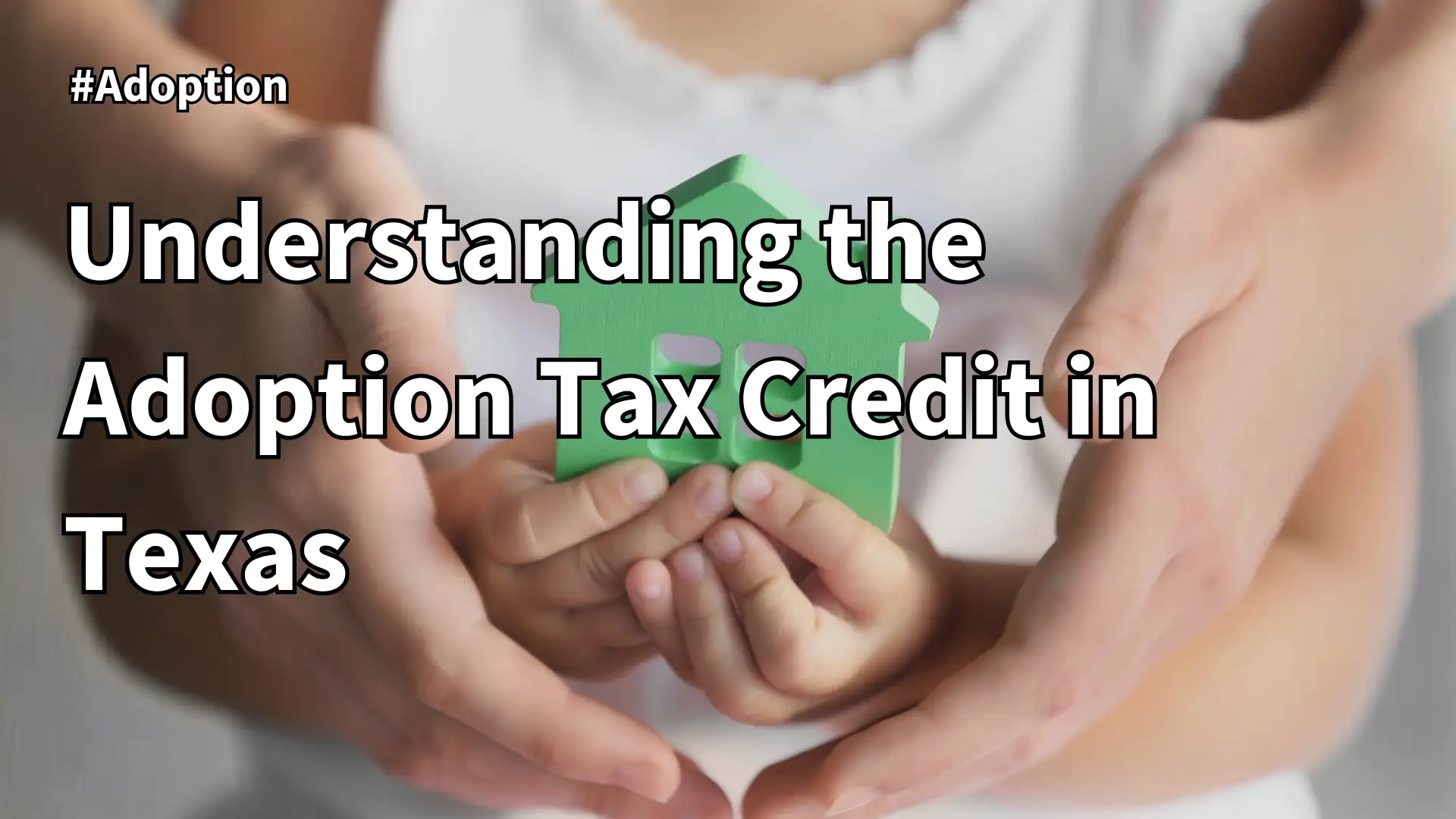
To qualify for a tax credit for adoptive parents in Texas, you must fill out IRS Form 8839. The IRS will credit you for any reasonable and necessary expenses you incurred in adopting a child. The federal adoption tax credit is nonrefundable, so you can’t use it to get extra money from the IRS. However, you may be able to reduce your tax liability to zero, depending on your expenses.
What Is the Adoption Tax Credit?
According to the Texas Adoption Resource Exchange, the adoption tax credit is a credit for the expenses of adopting a child. The Internal Revenue Service describes it as a nonrefundable credit for adopting an eligible child.
Eligibility for the Adoption Tax Credit
According to the IRS, you may be eligible for the adoption tax credit if:
- You adopted a child under the age of 18 or an adult who is physically or mentally incapable of caring for themselves.
- Your modified adjusted gross income for the past year is at or below $252,150. You can qualify for a reduced credit if your income is between $252,151 and $292,150.
The Special Needs child adoption, you can qualify for the tax credit as long as:
- Your child is a U.S. citizen
- Your child cannot return to their birth parents
- Your child would not have been likely to be adopted without paid assistance
What Expenses Qualify for the Adoption Tax Credit?
Expenses that qualify for the adoption tax credit include:
- The cost of travel, including meals and lodging
- Court costs
- Attorney fees
- Adoption fees
- Home study fees and other expenses incurred before you identified an adoption candidate
- Other expenses directly related to the adoption
Expenses that do not qualify for the adoption tax credit include:
- Expenses for adopting a stepchild
- Expenses for surrogate parenting
- Expenses covered by any federal, state, or local program
- Expenses covered by your employer
- Expenses that qualify for another federal tax credit or deduction
Claiming the Adoption Credit in Texas
According to the Texas Adoption Resource Exchange, you must claim the adoption tax credit the same year you finalize the adoption. What if the tax credit exceeds your tax liability for that year?
The IRS will not refund the difference. However, you can carry any remaining tax credit forward for up to five years. Carrying forward the adoption tax credit can help you reduce your tax liability for more than one year.
Excluding Expenses from Your Income
Some employers offer adoption assistance programs to help employees cover qualifying adoption expenses. If your employer has a written adoption assistance program, you can exclude covered expenses from your income. According to the IRS, you should exclude these expenses before calculating your adoption tax credit.
According to IRS Form 8839 instructions, you may be able to exclude up to $16,810 from your income and claim a $16,810 tax credit. However, you cannot exclude an expense from your income and then claim the exact cost as a tax credit. Any fees you exclude from your income must be separate from those you claim on the credit.
Claiming the Special Needs Adoption Tax Credit

In this situation, the IRS bases its definition of “special needs” on state law. According to the Texas Adoption Resource Exchange, a special needs child in Texas is one who:
- It is in the care of the Department of Family and Protective Services
- Is at least six years old but under 18, or at least two years old from an ethnic background that tends to exit foster care more slowly
- Receives SSI disability benefits or has been assessed by a professional as physically, mentally, or emotionally disabled
The DFPS must have determined that the child should not be returned to their biological parents. The DFPS must also have tried to find adoptive parents for the child without paid assistance.
Avoid Expensive Errors
The Texas Adoption Resource Exchange warns adoptive parents against making expensive tax errors when claiming the credit. Adoption tax rules only allow you to claim an expense once. If you claim expenses for an adoption in 2025, you cannot claim the same expenses again in 2026.
If the IRS does not accept your claim, it may reduce your tax credit or even assess expensive penalties. Common errors that can result in penalties include:
- Failing to document your expenses
- Failing to provide evidence that you’ve adopted a special needs child
- Calculation errors
To avoid making errors that can lead the IRS to reject your adoption tax credit claim, seek the assistance of a lawyer. A Texas law firm familiar with adoption tax benefits for families can help you avoid any mistakes.
What Can a Texas Adoption Lawyer Do for You?
A Texas family law firm can help you with every aspect of adopting a child, including filing for the adoption tax credit. An experienced adoption lawyer can:
- Answer your questions about Texas adoption law
- Safeguard your legal rights as you adopt a child
- Help you complete all forms accurately and correctly
- Help you meet all your deadlines in the adoption process
- Represent you in court if necessary
- Assist with the termination of parental rights
- Help you comply with all home study requirements
- Help with interstate or international adoption requirements
Smith & Bledsoe Family Law has helped many families in the area adopt a child in Austin. We can provide the guidance you need to avoid expensive mistakes or delays. Our team is here to help you understand your rights and take the first step toward securing the necessary benefits. If you have questions about adoption in Texas, contact us today to arrange a consultation.